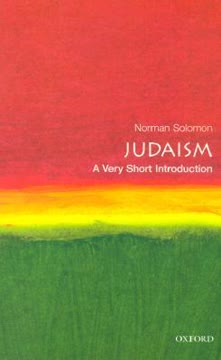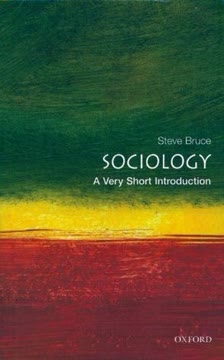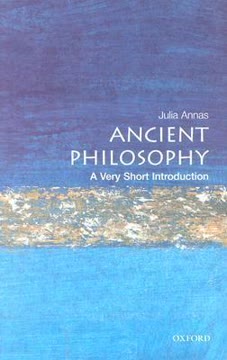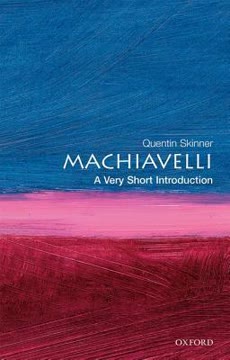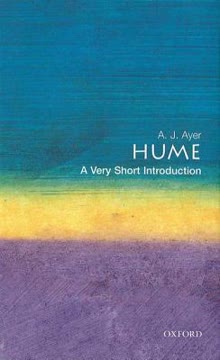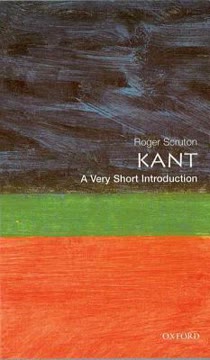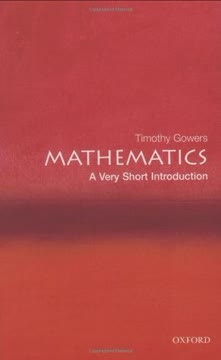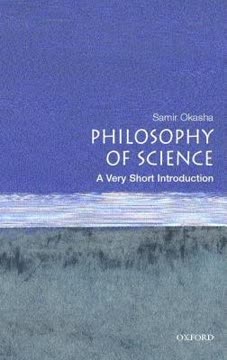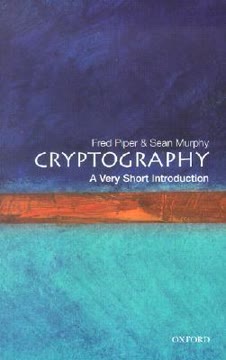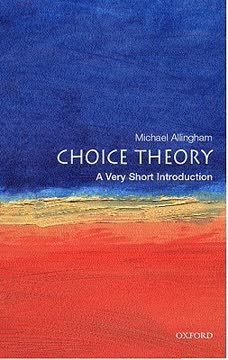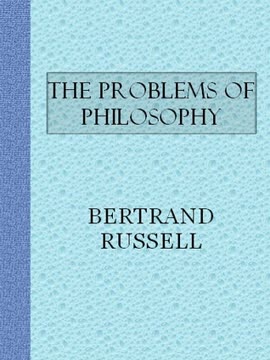つの重要なポイント
1. 古代哲学は永遠の人間の関心事に取り組む
メデアの状況は、彼らが、そして私たちが何年も後に哲学的に認識できる用語で説明と理解を求めるものです。
理性対感情: 古代の哲学者たちは、メデアのジレンマに象徴される理性と感情の対立に取り組みました。この緊張は今日でも関連性があり、私たちは依然として動機や行動を理解しようと苦労しています。
競合する理論: ストア派は魂を一体と見なし、感情は理性の一形態であると主張しました。これに対してプラトンは、魂を理性的部分と感情的部分に分けました。これらの異なる視点は、人間の本性の複雑さと理性と感情の関係についての継続的な議論を浮き彫りにします。
- ストア派の見解: 感情は理性の一形態
- プラトンの見解: 魂は理性的部分と感情的部分に分かれる
哲学的関連性: これらの古代の議論を検討することで、私たち自身の対立する欲望や動機に対する洞察を得ることができ、哲学的探求の人間の状態を理解するための永続的な価値を示しています。
2. 『国家』の解釈は変化する文脈とともに進化する
それは確かに彼のより示唆に富むものの一つです。
焦点の変化: プラトンの『国家』の解釈は、異なる時代の関心や視点を反映して劇的に変化してきました。
歴史的文脈: 当初は倫理に関する作品と見なされていた『国家』は、19世紀には政治的テキストとしての重要性を増しました。この変化は、民主主義や政治改革に関する当時の議論に影響されました。20世紀には、解釈がより批判的になり、一部は全体主義的と見なされました。
- 古代の見解: 主に倫理的な作品
- 19世紀: 政治改革のための青写真
- 20世紀: 物議を醸す政治的アイデア
解釈の教訓: 『国家』の受容の変化は、古代のテキストに取り組む際に自分たちの前提や歴史的文脈を考慮する重要性を強調しています。また、異なる関心に応じて何世紀にもわたって語りかける哲学的作品の豊かさと複雑さを示しています。
3. 古代倫理における幸福は現代の概念とは異なる
古代倫理思想における幸福は、気分が良いとか満足しているということではありません。それは感情や感覚ではなく、あなたの人生全体が幸福かどうかということです。したがって、幸福についての議論は幸福な人生についての議論です。
エウダイモニア: 古代ギリシャの倫理はエウダイモニアに焦点を当てており、これは「幸福」と訳されることが多いですが、より正確には人間の繁栄や良い生活を意味します。
徳と幸福: 多くの古代哲学者にとって、徳は幸福を達成するための中心的な要素でした。これは、幸福を快楽や欲望の満足と同一視する現代の快楽主義的見解とは対照的です。
- 古代の見解: 幸福は良い生活
- 現代の見解: 幸福はしばしば快楽や満足と見なされる
- 主要な議論: 徳は幸福に十分か?
永続的な関連性: 古代の倫理アプローチは、現代の幸福の概念に対する魅力的な代替案を提供し、一時的な快楽や満足に焦点を当てるのではなく、私たちの人生全体の形と質を考慮するよう促します。
4. 古代の認識論は知恵と理解に焦点を当てる
知識にとって重要なのは、専門家のように関連項目を全体として関連付けて把握し、これを説明する理由を述べることができるかどうかです。これは、特定の判断を説明し、全体の統一的な把握に関連付けるものです。
専門知識モデル: 古代の認識論は、単なる事実の蓄積ではなく、理解と知恵を重視しました。知識は専門知識に似ており、主題の包括的な把握を必要としました。
哲学的アプローチ: 異なる学派はさまざまな認識論的理論を発展させました:
- プラトン: 知識は形相の理解
- アリストテレス: 知識は特定の科学内での構造化された理解
- ストア派: 経験的事実の「把握」に重点
- 懐疑派: 確実性を達成できないため判断を保留
今日の関連性: 古代の理解と知恵に焦点を当てることは、知識を情報と同一視する現代の傾向に対する貴重な対抗点を提供します。より深い理解を求め、研究分野内のアイデアの相互関連性を認識するよう促します。
5. 論理は哲学的推論の道具として発展する
論理はアリストテレスの最も印象的な業績の一つです。人々を説得するだけの議論と、正当な推論によって真の結論に導く議論を分類し区別する体系的な技術が存在しなかったため(そして今日のように、多くの影響力のある人々が両者を混同することを誇りにしていたため)、アリストテレスは正当な議論の概念を体系化し、広範な論理体系を構築しました。
アリストテレスの論理: アリストテレスは三段論法の論理体系を開発し、議論の形式的構造に焦点を当てました。
ストア派の貢献: ストア派は命題論理を進展させ、命題間の関係を検討しました。
- アリストテレス: 用語と普遍的主張に焦点
- ストア派: 複合命題と推論規則の分析
哲学的重要性: 論理の発展は、哲学者に厳密な推論と議論分析の道具を提供しました。この論理構造への強調は、今日の哲学的思考の特徴であり続けています。
6. テレオロジーは自然と目的に関する古代の見解を形作る
アリストテレスのテレオロジー的アプローチは、彼の最も共感的な洞察の源です。
競合する見解: 古代の哲学者たちは、自然界における目的の存在と性質について多様な視点を持っていました:
- アリストテレス: 設計なしのテレオロジー、内在する自然の目的に焦点
- プラトンとストア派: 設計ありのテレオロジー、神的創造者や合理的秩序を仮定
- エピクロス派: テレオロジーの否定、自然をランダムな原子運動で説明
持続的な影響: 自然における目的に関するこれらの議論は、西洋思想に持続的な影響を与え、宇宙の起源と性質に関する神学的および科学的議論を形作りました。
7. 哲学はソクラテスとプラトンによって独自の学問分野として登場する
プラトンは哲学を独自の学問分野として確立した最初の哲学者であると主張することができます。
ソクラテスの方法: ソクラテスは、理解を追求する上での質問と理性的な議論の重要性を強調しました。
プラトンの貢献: プラトンは哲学を制度化しました:
- アカデメイアの設立
- 哲学的推論を示す対話の執筆
- 体系的な哲学的見解の発展
専門化: 哲学的学校の設立は、独自の方法、用語、および議論の伝統を持つ学問分野としての哲学の発展をもたらしました。
8. 古代の哲学的学派は多様な知的伝統を育む
紀元前1世紀から、学派間の継続的な議論が、新しい立場を形成するために異なる学派の立場を組み合わせたハイブリッドまたは「折衷的」な学派を生み出すことがわかります。
主要な学派: さまざまな哲学的伝統が登場しました:
- プラトニズム
- アリストテレス主義
- ストア派
- エピクロス派
- 懐疑派
- キュニクス派
知的交流: これらの学派は継続的な議論とアイデアの交差受粉に従事し、ハイブリッドアプローチの発展と議論の継続的な洗練をもたらしました。
文化的影響: 多様な哲学的学派は、地中海地域全体で教育、政治、個人倫理に影響を与え、古代世界に豊かな知的風景を提供しました。
9. 古代哲学の終焉は文化的な転換を示す
しかし、キリスト教皇帝による不寛容が伝統の終焉を示したという考えには正当性があります。
歴史的文脈: 529年にアテネの異教哲学学校が閉鎖されたことは、古代哲学が生きた伝統として終焉を迎えたことを象徴しています。
文化的変容: キリスト教の台頭は知的焦点のシフトをもたらしました:
- 理性的探求よりも信仰と聖書に重点
- 哲学的アイデアの選択的なキリスト教神学への取り込み
- 哲学的議論の多様性と公開討論の衰退
遺産: 古代哲学は連続した伝統としては終わりましたが、そのアイデアと方法は西洋思想に影響を与え続け、ルネサンスや啓蒙時代などの後の歴史的時期に周期的に重要性を取り戻しました。
最終更新日:
FAQ
What's "Ancient Philosophy: A Very Short Introduction" about?
- Overview: The book, written by Julia Annas, provides a concise introduction to ancient philosophy, exploring its themes and relevance to modern thought.
- Themes: Annas examines six key themes to engage readers with ancient philosophical ideas and their modern interpretations.
- Approach: The writing is lively and non-technical, making complex philosophical ideas accessible to a broad audience.
- Purpose: It aims to stimulate interest in ancient philosophy and highlight its ongoing influence on contemporary thinking.
Why should I read "Ancient Philosophy: A Very Short Introduction"?
- Engaging Style: Julia Annas is known for her engaging writing style, which makes complex philosophical ideas accessible and interesting.
- Foundational Knowledge: The book provides a foundational understanding of ancient philosophy, essential for anyone interested in the history of ideas.
- Modern Relevance: It connects ancient philosophical themes to modern issues, showing their continued relevance.
- Expert Insight: Annas is a renowned scholar, offering authoritative insights into ancient philosophical traditions.
What are the key takeaways of "Ancient Philosophy: A Very Short Introduction"?
- Philosophical Themes: The book explores six major themes in ancient philosophy, including ethics, knowledge, and metaphysics.
- Historical Context: It provides historical context for ancient philosophical ideas and their development over time.
- Modern Connections: Annas highlights how ancient philosophy influences modern thought and how it is interpreted today.
- Philosophical Engagement: The book encourages readers to engage with philosophical ideas critically and reflectively.
How does Julia Annas approach ancient philosophy in this book?
- Non-chronological: Annas does not follow a strict chronological order but focuses on themes to engage readers with philosophical ideas.
- Thematic Exploration: She explores six themes to highlight the interest and challenge of ancient philosophy.
- Modern Relevance: Annas connects ancient ideas to modern philosophical discussions, showing their ongoing influence.
- Accessible Writing: The book is written in a lively, non-technical style, making it accessible to a wide audience.
What are the six themes explored in "Ancient Philosophy: A Very Short Introduction"?
- Humans and Beasts: Understanding the conflict of reason and emotion within ourselves.
- Plato’s Republic: Examining why this work is still read and its impact on modern thought.
- The Happy Life: Comparing ancient and modern views on happiness and virtue.
- Reason and Knowledge: Exploring ancient skepticism and the nature of knowledge.
- Logic and Reality: Discussing metaphysical debates and the nature of reality.
- Philosophical Beginnings: Investigating the origins and nature of ancient philosophical traditions.
What is the significance of Plato's "Republic" according to Julia Annas?
- Central Work: "Republic" is often seen as a central work in Plato's thought, especially in modern interpretations.
- Political Theory: It is frequently read as a political text, though Annas suggests its ethical themes are equally important.
- Historical Reception: The book's interpretation has changed over time, reflecting different philosophical and cultural contexts.
- Philosophical Engagement: Annas encourages readers to question traditional interpretations and engage with the text critically.
How does Annas address the concept of happiness in ancient philosophy?
- Eudaimonism: Ancient philosophy often views happiness as living a life of virtue and fulfillment, not just pleasure.
- Virtue and Happiness: Annas explores how ancient thinkers like Aristotle and the Stoics connect virtue to happiness.
- Hedonism Critique: The book discusses the limitations of hedonism as a path to happiness in ancient thought.
- Modern Relevance: Annas relates these ancient ideas to contemporary discussions on happiness and well-being.
What role does skepticism play in ancient philosophy according to the book?
- Socratic Influence: Socrates is seen as a foundational figure in skepticism, questioning the certainty of knowledge.
- Pyrrhonism: The book explores Pyrrhonian skepticism, which emphasizes suspension of judgment and tranquility.
- Academic Skepticism: Annas discusses the skeptical tradition in Plato's Academy, which focused on questioning dogmatic beliefs.
- Philosophical Impact: Skepticism challenges the assumptions of knowledge and belief, influencing later philosophical developments.
How does Annas describe the relationship between logic and reality in ancient philosophy?
- Aristotelian Logic: Aristotle's development of logic as a tool for understanding reality is a key focus.
- Stoic Contributions: The Stoics' advancements in propositional logic are highlighted as significant.
- Metaphysical Debates: Annas discusses ancient debates on the nature of reality and the role of logic in understanding it.
- Philosophical Tools: Logic is presented as both a tool and a subject of philosophical inquiry in ancient thought.
What are the best quotes from "Ancient Philosophy: A Very Short Introduction" and what do they mean?
- "Philosophy begins with wonder": This quote from Aristotle emphasizes the natural human desire to understand the world.
- "The happy man needs the goods of the body and external goods": Aristotle's view that happiness requires both virtue and external goods.
- "The philosopher-king is Plato himself": A critique by Karl Popper, suggesting Plato's political ideas reflect his own philosophical ambitions.
- "The investigation of the truth is in one way hard, in another easy": Aristotle's acknowledgment of the challenges and rewards of philosophical inquiry.
How does Annas address the origins of ancient philosophy?
- Greek Beginnings: The book explores the emergence of philosophy in ancient Greece, starting with figures like Thales.
- Cultural Influences: Annas discusses the influence of Eastern cultures on early Greek philosophical thought.
- Philosophical Traditions: The development of distinct philosophical traditions and schools is a key focus.
- Historical Context: The book provides context for the social and cultural factors that shaped ancient philosophical ideas.
What is the role of philosophical schools in ancient philosophy according to Annas?
- Institutionalization: Annas describes how philosophical schools institutionalized philosophy as a subject of study.
- Diverse Traditions: The book highlights the diversity of philosophical schools, such as the Stoics, Epicureans, and Cynics.
- Intellectual Community: Schools provided a community for philosophical debate, teaching, and the development of ideas.
- Legacy: The influence of these schools on the transmission and evolution of philosophical thought is emphasized.
レビュー
本書『古代哲学: 非常に短い入門』は賛否両論を受けている。多くの読者はその情報量と魅力的な内容を評価し、主要な哲学者やアイデアの簡潔な概要を称賛している。著者のバランスの取れたアプローチとアクセスのしやすさが好評だ。しかし、一部の読者は本書の密度と時折の詳細不足を批判している。中盤のセクションはペースが遅く、より技術的であると指摘されている。さらなる学習のための優れた出発点と見なす人もいれば、完全な初心者には難しいと感じる人もいる。全体として、本書は古代ギリシャ哲学への堅実な入門書と見なされているが、限界もある。
Very Short Introductions Series Series
